Canyon Ultimate AL 9.0 ES Road bike review
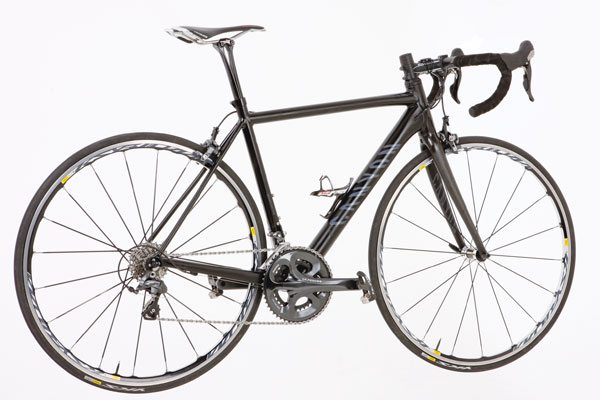
The £1,699 price tag will no doubt raise the eyebrows of many, given its aluminum heart and all that. But when you check out the spec, the Mavic Ksyrium Elite wheels are around the £500 price mark and the VCLS Post 2.0 on its own that would set you back another £216.95. Then there's the complete Ultegra groupset, no cheeky swap-outs here, Ritchey bar and stem, Selle Italia saddle - this stuff isn't budget by any stretch. It's a lovely ride, once you get the final set up correct. Canyon is super-helpful on the phone, and it actively encourages you to call in advance of hitting the final 'confirm' button. However, it's that element of personal interaction you lose out on. It's definitely a bike worthy of the price tag, but at the cost of cutting out your LBS.
-
+
Comfortable
-
+
Confident inspiring ride
-
-
Not much
You can trust Cycling Weekly.
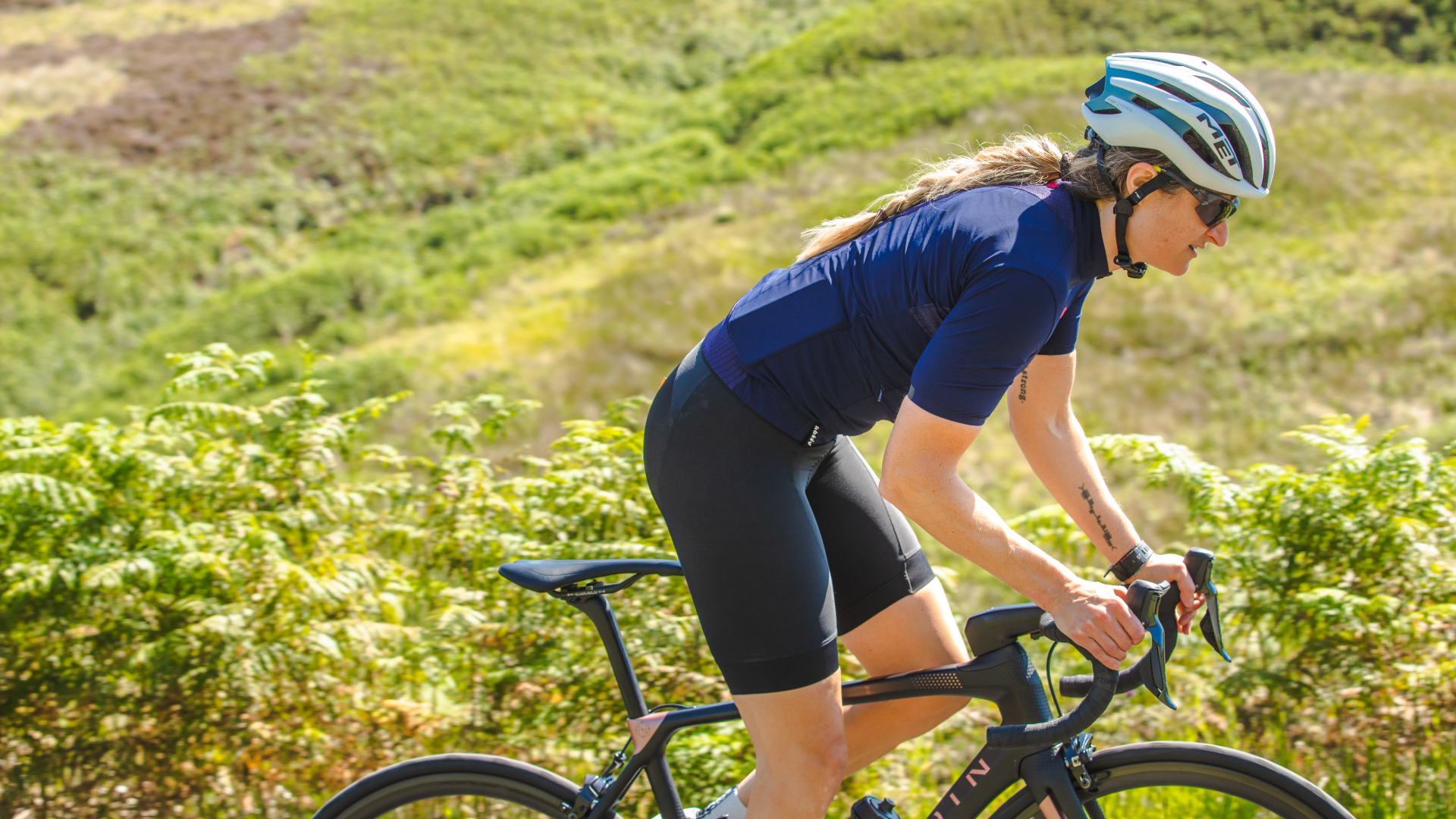
While we've become familiar with the Canyon brand name over the past couple of years under the likes of Joaquim Rodriguez, Denis Menchov and the rest of the Katusha squad, we've not actually swung our own leg over one of the bikes, or indeed got up close and personal with one.
So when offered the chance to climb on board one we jumped at the chance. It's worth taking a moment to explain the German brand. In summary, back in the late 1970s a salesman father saw an opportunity to make a few quid on the side at his son's bike races by selling a few spares out the back of trailer.
Fast forward a few decades and the business Radsport Arnold had grown up, going from flogging a few rebadged off-the-shelf mountain bikes, to designing its own bespoke bikes and of course giving itself the more international-sounding brand name Canyon. It's now a successful empire employing a team of engineers developing, testing and manufacturing its own range of road, mountain and time trial bikes.
Selling bikes worldwide isn't necessarily a remarkable feat in its own right; but doing so without any bike shop presence is. While this direct sales model opens up a can of local-bike-shop-support worms, the Canyon theory is that there is no better-placed person to speak to about your bike needs than the manufacturer.
And this is why I find myself on the phone to Germany. Having worked though Canyon's online Perfect Positioning System and ‘how to' videos to ascertain my frame size, the end suggestion is two sizes bigger than I normally ride. I suspect gremlins in the system and one call to the Canyon helpline and we were all agreed I should stick to what I know. I am now astride an extra small Ultimate AL 9.0 ES.
Yes, AL does stand for aluminum. It's the stuff I grew up riding on. The problem of this early experience is that I still expect a similar ride. Very stiff and uncomfortable. The kind of ride that gave so much road feedback that vision would actually become blurred on long stretches of rough tarmac.
Pairing the frame with a full carbon fork will hopefully help alleviate some of these road buzz issues, as will Canyon's ‘VCLS Technology' (Vertical Comfort, Lateral Stiffness) the name given to any part of the bike that's been constructed to give some, er, give.
Sections such as the thin seatstays include a slight bend promising to absorb vibration and there's an intriguing looking VCLS 2.0 carbon seatpost. It's a seatpost of two halves - front and back. Each half fitting in the seat tube, flaring out at the top and then joined together by the saddle clamps.
It's a bit like a vertical version of a ‘Softride' suspension stem. You would be forgiven for concluding that this isn't a sporty number, but one quick look at the geometry and finishing tells you otherwise. The head tube is 5mm higher than my old race bike at 125mm, and with a steepish seat tube angle of 73.5° this is by no means a sit-up-and-beg bike. The test bike colourway of stealthy matt black also alludes to its race bike status.
Coming more or less ready to rock out of the box, with just the requirement for pedals to be added, after tightening of a few bolts I'm rolling.
Sitting comfortably
The first thing you notice is, without doubt, that carbon seatpin. If I was carrying more weight, I suspect it would be significantly noticeable throughout the first few rides, but it wasn't until the corners that I experienced the flex. Its akin to a full-suspension mountain bike - it feels like the corner is sucking you in. It's unnerving at first and I needed to make other changes to become fully dialled into the ride before venturing out again.
Swapping the saddle to my preferred Specialized Toupe was easy enough, as was switching the spacers from under the stem to on top in order to get the front lower. The 1 1/2in Acros i-Lock headset system is another aspect of the bike that took some getting used to, albeit just visually. The system does away with the traditional star nut and works on a simple two-piece clamp that is placed over the fork steerer before the stem. The stem clamp bolts are tightened and headset play is removed by tightening the adjusting bolt on the clamp creating a gap between the two clamp pieces. It sounds more complicated than it is, and really the biggest change is that as there are no headset inners.
So, first-ride faff out the way, I'm out again with a more familiar position and this time rather than alarming me, that seatpost instils confidence. The flex in the corners now makes me feel planted to the tarmac.
My concerns over road buzz vibrations were alleviated. In fact, I've thought very little about the frame material throughout our time together. It's not the lightest, at 7.38kg, but that's certainly not at the cost of using aluminum. A full carbon bike at this price point would possibly weigh more. The other benefit is that aluminum is a cheaper material and easier to work with, and, as I've experienced on the Ultimate AL 9.0 - when combined with a carbon fork - light years away from bikes of old.
To be fair, aluminum is seeing a bit of a renaissance within other brands, to varying degrees of success. The Ultimate AL 9.0 ES is a prime example of when it's done well.
Coming with Ultegra 6700, equipped with a compact chainset and an 11-28 cassette it was perfect to take to the cols of southern France and hills of the Derbyshire Dales, both times proving itself as a spot-on choice. This time I noticed that saddle flex more on the lengthy sit-down climbs, but the bike put out more or less what I put in.
Having made another swap out for my favourite 25mm Michelin Pro4 tyres, the bike just keeps gifting in the descending and fast cornering stakes. The more I ride it, the more confident I get. It's predictable in leaning over and swiftly reacting to potholes and other obstacles.
The climbing aspect could be pinpointed to the slightly squared seat tube, which Canyon claims adds a 30 per cent greater lateral stiffness to the frame in the bottom bracket area compared to a conventional round-section seat tube. Likewise handling predictability could be attributed to the fork rake/trail balance and wheelbase, but ultimately it just comes down to good holistic bike design

Thank you for reading 20 articles this month* Join now for unlimited access
Enjoy your first month for just £1 / $1 / €1
*Read 5 free articles per month without a subscription

Join now for unlimited access
Try first month for just £1 / $1 / €1
Get The Leadout Newsletter
The latest race content, interviews, features, reviews and expert buying guides, direct to your inbox!
Hannah is Cycling Weekly’s longest-serving tech writer, having started with the magazine back in 2011. She has covered all things technical for both print and digital over multiple seasons representing CW at spring Classics, and Grand Tours and all races in between.
Hannah was a successful road and track racer herself, competing in UCI races all over Europe as well as in China, Pakistan and New Zealand.
For fun, she's ridden LEJOG unaided, a lap of Majorca in a day, won a 24-hour mountain bike race and tackled famous mountain passes in the French Alps, Pyrenees, Dolomites and Himalayas.
She lives just outside the Peak District National Park near Manchester UK with her partner, daughter and a small but beautifully formed bike collection.
-
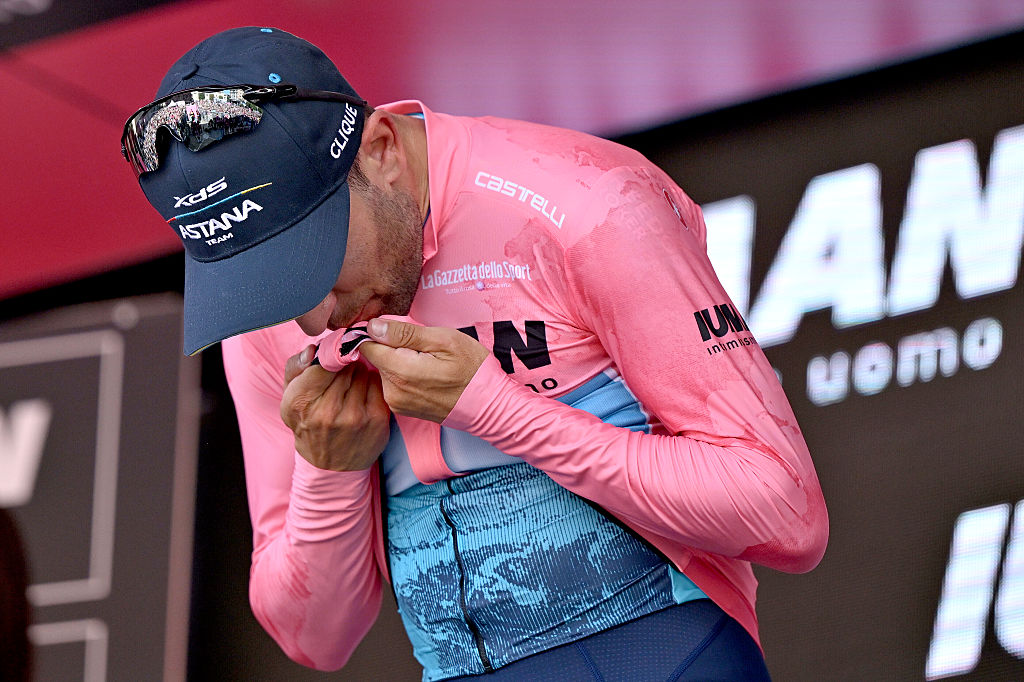 ‘An indescribable emotion’ - Italian veteran Diego Ulissi seals dream to wear pink on home roads during Giro d'Italia gravel stage
‘An indescribable emotion’ - Italian veteran Diego Ulissi seals dream to wear pink on home roads during Giro d'Italia gravel stageThe XDS-Astana rider took over the pink jersey from Primož Roglič on stage 8
By Dan Challis Published
-
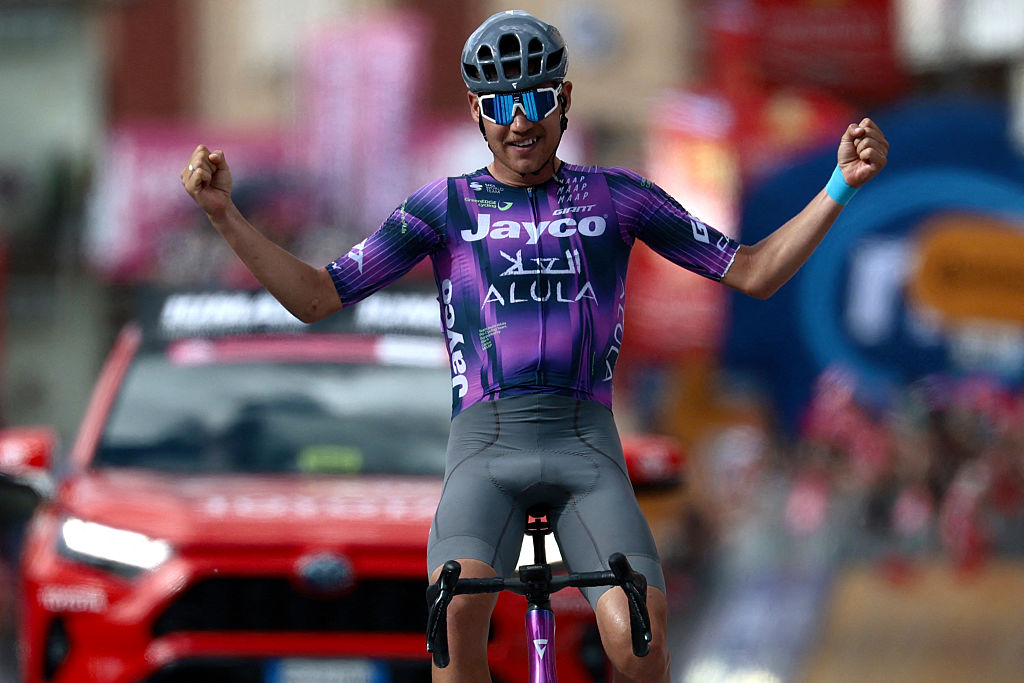 Luke Plapp solos to win action-packed Giro d'Italia stage 8 as Ulissi steals pink from Roglič
Luke Plapp solos to win action-packed Giro d'Italia stage 8 as Ulissi steals pink from RogličAustralian plays his tactics perfectly on an attacking day through the Apennines
By Dan Challis Published
-
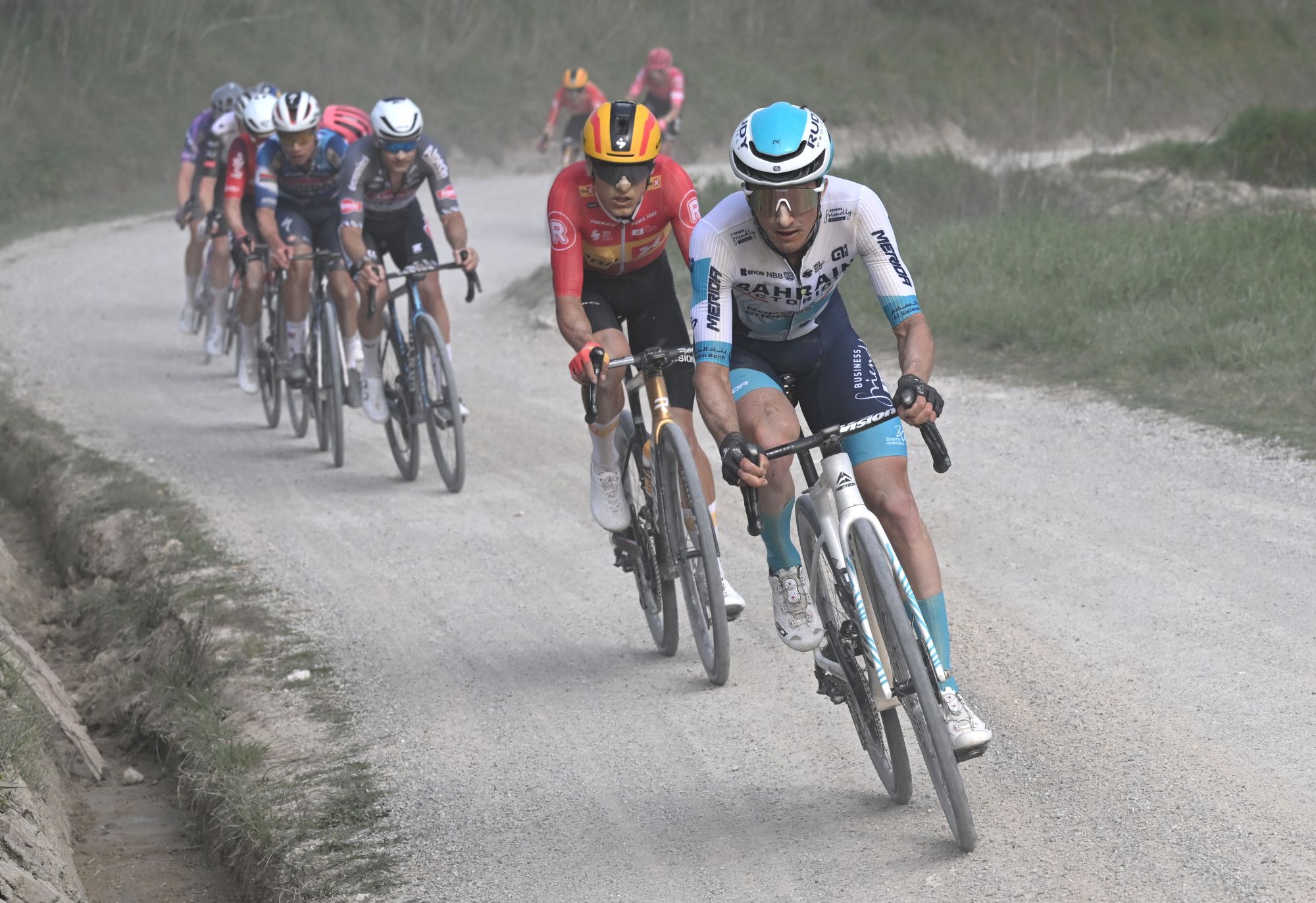 'When everyone starts to panic, you just need to breathe deeply': Fearless approach key to success on Giro d’Italia gravel stage
'When everyone starts to panic, you just need to breathe deeply': Fearless approach key to success on Giro d’Italia gravel stagePello Bilbao expects Strade Bianche-style stage on Sunday to be both a physical and mental challenge
By Tom Thewlis Published